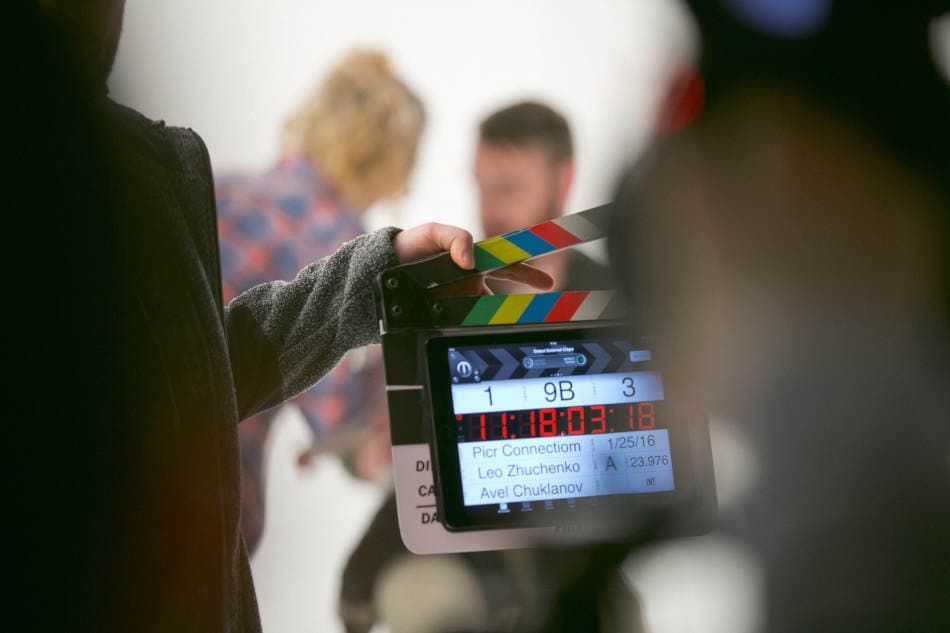The UK is a great place to become an actor. Some of the best films and tv shows are made here and don’t even get me started on how amazing the theatre scene is, from Shakespeare to the West End. If you want to make a career in acting in the UK, it’s definitely not going to be an easy journey, but if you are determined to make it happen, it’s definitely possible.
There isn’t a correct way of becoming an actor in the UK. Although there are a few things that an actor needs to know and a few common practices that people follow in order to increase their chances of success. Whether you’re an absolute beginner, or an expert in another country, following this article step by step will help you understand and navigate your first few years as an actor in the UK, and give you the knowledge to move forward.
Table of Contents
Decide That You Want to Become an Actor
If you’ve not had any experience acting yet, you may think you like the idea of becoming an actor, but don’t want to endure the journey. So you first need to get some form of acting experience in order to know whether you actually enjoy it enough to plow through the hard times. But how do you start acting with no experience?
Usually, in the UK, many actors will start off by acting in clubs and amateur theatre groups. I did shows in an amateur theatre group after school between the age of 15 and 18, and I can honestly say it was the best preparation for my professional training I could have asked for.
When trying to get into a drama school or university, they want to know that you have some form of experience. Drama school auditions are very competitive and you could be going against people with already established careers. Often you may be turned down just because you don’t have enough experience yet. It’s harsh, but it’s the reality of it.
READ: Learning to Act Without Classes (Is It Possible?)
So get that experience, even if it’s not professional experience. Just being on a stage will help you out in the long run, even if you actually want to go into film. In fact, most people believe starting out in theatre is the best way to develop your ability, and this is how almost all British actors do it.
Maybe that’s why some people believe that British actors are the best in the world. Or maybe it’s just because Americans think we sound smarter than we actually are. Who knows?
Understand How The Industry Works

Every country has its own process of how the entertainment industry works, whether you go to the US, Canada, Australia, India, or the UK, the processes will be slightly different. Although ultimately they’re all based around a similar structure.
Important Roles In Film Production
Firstly there’ll be a few important roles that we need to know:
- Producers; A producer oversees everything in the project’s production. They’re responsible for the funding, hiring, major production decisions, logistics and operations, ensuring the project runs smoothly and managing the budget.
- Director; depending on the type of project, Directors usually have control of the look and feel of the final outcome. They often play the largest role when it comes to making casting decisions unless a producer or studio overrides their decisions, and they help bring out the actor’s performance. It’s everyone’s job to ensure that the Director’s vision comes to life in the final product.
- Casting Director; A Casting Director essentially runs the casting process. They’re the ones sending the emails, auditioning actors and making suggestions to the Director and Producers about who they should hire. They have a very large say when it comes to who gets to audition, and it’s their job to put together the perfect cast.
The Casting Process
READ: How Do Actors Get into Films? (Casting Process Explained)
Once a project has been funded and the Casting Director has been hired. The casting process begins. If a Casting Director has specific ideas about an actor, they will contact their Talent Agent and ask them to audition.
They will then send out breakdowns for each character using the casting website, Spotlight. In the UK, Spotlight is the industry-standard service for casting, and actors must meet a few requirements in order to be eligible, these can be found on the Spotlight website.
Once a breakdown has been sent out and your agent recommends you for a role, the Casting Director will decide whether they want you to audition or not, this is based on your:
- Headshots: Your headshot shows your look. If you look like the character, they may bring you in for an audition solely from your headshots.
- Credits: Credits are the projects that you’ve been in already. These will be on your CV, or your Spotlight profile. A Casting Director is more likely to get someone to audition if they can see you have a lot of experience.
- Showreel: Your showreel is essentially an advert. It shows your acting ability, and allows the Casting Director to see you in action. Your headshot is great for seeing your look, but your showreel puts your look into perspective.
- Training: Training is very helpful, not only as you’ll learn to act (obviously) but because when you have no experience, you have no credibility. A good training institution can give you that credibility when you have none.
We’ll talk about these as we move on.
Once you audition, it’s self-explanatory. You either get the role, or you don’t. If you get the role, you’ll sign a contract and then go into production. If you don’t get the role, you keep trying until you get a role. This industry is all about perseverance, and learning to accept rejection, actors receive a lot of it.
Get Some Acting Training

Many people would argue that training is the most important thing for an actor. Although some actors are naturally talented, these actors are few and far between. And if you are one of the rare ones, a good acting teacher can still help turn that natural talent into something truly exceptional.
Thankfully, actor training in the UK is some of the best training worldwide, with some institutions holding more than 150 years of experience, you can be sure that you’re in great hands.
Once you have the training, you can list it on your CV and Spotlight profile, this will improve your castability, especially when you have limited, to no experience.
Although drama school isn’t the only option, here are the best and most common ways to develop and train your acting ability.
Drama School
The first is drama school or university. This path definitely isn’t for everyone, although if you decide you’d like to give it a go, this option can be amazing and has developed some of the best talent in the world.
Drama Schools in the UK are 3 year-long courses and are completely practical in their teaching. You will learn everything from how to use your voice, to your body, to acting techniques from Konstantin Stanislavski, Anton Chekhov, Lee Strasburg, and many more. You will learn how to work with a script, and how to devise and improv.
READ: Top 12 Drama Schools in the UK
There’s no doubt that if you make the most of your time at drama school, you’ll come out a brilliant actor, but will you know everything? Definitely not. No matter how you train, whether it’s through drama school or any of the other options here, the most important thing is that you keep learning. Drama schools most important subconscious lesson is how to learn. If you keep that in mind, you’ll be destined for great things.
Over your three years, you’ll perform in many productions and work with successful industry professionals. You’ll network with people that can potentially give you work after graduating, and you’ll be around like-minded people, and you’ll have opportunities for showcases where top casting directors and agents will be invited to see you perform. A valuable opportunity for your career.
What if I’ve already done a degree in something else? If you already have a degree in something that isn’t acting, many drama schools and universities offer Masters degrees in acting. As long as you show an understanding of the industry, a base level ability and a love for the craft, these schools may offer you a place.
READ: Drama School vs University for Actors: Which is Better?
Classes & Workshops
If you can’t, or don’t want to take 3 years of your life to go to a drama school, you can always do traditional acting classes and workshops. These can be great as there’s no ongoing obligation to go to classes, and they allow a great deal of flexibility, allowing you to find work at the same time.
Although you must be thorough when looking for a teacher. Do your research, ask friends and people who have studied with acting teachers and perhaps even sit in on a class before joining.
I also recommend that even drama school graduates should get involved with acting classes and workshops if they’re not working often. Staying active, even when unemployed is very important for an actor as you never know when the next job is going to come. Can you think of anything worse than getting a big audition and completely flunking it because you haven’t been on top of your acting for the last few months?
An actor’s skills should be constantly developing and if you’re not working or training, you’re not learning or developing.
Other Resources
Drama School isn’t for everyone. I recently wrote an article about how to learn to act without taking classes. Taking an acting class can definitely help, but the advice in this article is great for beginners and can even be implemented between classes.
There are also some great books and masterclasses that you can watch. Some people don’t like books as they’re not inherently physical, but I think when used correctly they can be a brilliant material to expand your knowledge. Some highly respected teachers and practitioners to look into would be Stanislavski, Uta Hagen, Stanford Meisner, Stella Adler and Lee Strasburg.
Read their books, watch their masterclasses if they have any, and take it all in. It won’t all be useful, but I can almost guarantee that you’ll find something that helps you, and you’ll start to develop your own methods and techniques.
If you’re interested in learning more about acting techniques, I have a great article on the 5 Best Acting Techniques That All Actors Should Know. I give a summary of the basics of each technique and help you decide which technique you should learn!
Get Your Marketing Materials

There are three main things that every actor needs in order to have any level of success in the industry. If an actor doesn’t have these things, they won’t be taken seriously, so as soon as you decide to make the move into the professional world, get these three things sorted:
1. Headshots
Your look is your brand, so how can a casting director bring you in for an audition if they can’t see what you look like? How can an agent represent you if they don’t know who you are? Getting high-quality, professional actor headshots are absolutely essential to an actor’s success. They’re not meant to make you look beautiful, they simply need to look like you.
When you walk into the audition room the casting director needs to see the same person as on your headshot. So go to a headshot photographer that works specifically with actors, don’t ask your friend, don’t use a selfie, and definitely don’t use a passport photograph, you’ll only look unprofessional.
Actor headshots can range in price depending on the photographer’s location, reputation and a few other factors. But you can expect to spend a few hundred pounds on a photographer.
If this is your first time getting headshots, you should get between 3-5 with varying looks. Any less and you won’t have enough variation, any more is usually too much.
2. CV
The CV. It’s self-explanatory why you need one, really. It lets casting directors and industry professionals know who you are, what you’ve done, and the training you’ve had.
If you don’t have much experience at the start, that’s okay. Put the focus on your training and think about doing some unpaid projects in order to get some credits, and showreel material. We’ll talk about how to find work in a later step.
NOTE: Never put extra work on your CV or Showreel! You may be tempted to add extra work to your CV if you don’t have much experience, although I can promise you that it will do more harm than good. It’s usually an instant red flag that you’re inexperienced and don’t know how the industry works. If you’ve done this before, don’t worry. Just take it off and move forward.
READ: The Complete Guide To Extra Work For Actors
3. Showreel
Your showreel is your advertisement. It shows a casting director what you can do, what you’ve done in the past, and also a more in-depth look at the way you look.
A showreel should be a maximum of about 2 minutes long and should be entertaining from start to finish. Add a range of materials, showing a spectrum of what you can do. For maximum effectiveness, try taking clips that are about 10-30 seconds in length and cutting them together smoothly.
If you have a lot of varying material, you may benefit from making showreels for specific types of work, for example, a commercial reel, a dramatic reel, and a comedic reel. Although this isn’t really something you should worry about until you have a lot of work under your belt.
There are also companies that will help film a showreel scene for you for a cost, these can be good options, but you must think about where you are ability-wise. Do you really want to spend a few hundred pounds on a 2-minute scene when you’ve only been doing classes for a month? Probably not, get some experience first and think about taking this route a bit later on. There’s no rush.
Get a Talent Agent

People always talk about the catch-22 for actors. “You need an agent to get work, but you need work to get an agent.” And while there is truth to this statement, it’s also not completely true.
I recently put together a full step-by-step article on how to get an agent that will guide you through the process, I’d highly recommend checking this out as it goes more in-depth into the topic. And while you’re at that, why not check out my post on the top talent agencies in London?
What does an Acting Agent do? An Acting Agent, or a Talent Agent as they’re professionally known as represents actors or performers in order to find their work in the industry. They build relationships with Casting Directors in order to get auditions for their actors and negotiate contracts when successful in landing the role.
Do actors really need agents? An actor can get work without an agent, although having an agent will allow an actor to audition for higher quality roles, in larger productions, with higher salaries.
It’s definitely possible to find work when you first start off without an agent, although as soon as you have a few credits, and you’ve got your marketing materials, you should email agents, introducing yourself.
Once you get an agent, you’re not guaranteed success, and you should still look for work yourself, it’s not just your agent’s job, but your agent will be there to back you up and assist you along the way.
When I first got my agent, I had never had a PAID acting job before. My experience consisted of amateur theatre, drama school, and student films. I then filmed a monologue that I wrote, sent it to a bunch of agents, and had a meeting with a few. I was then offered a place on an agent’s books and I took it.
How much does an agent cost? An agent won’t cost anything upfront, although they will take a commission from the work you get. In the UK this is usually 10-20%. There may be upfront costs, like headshots, if your agent requests you get new ones, but this money will go to a headshot photographer, not your agent.
Never pay an agent in order to join their books. Upfront fees are the #1 sign of a scam. If you see this, RUN!
READ: How Much Does An Acting Agent Cost
Spotlight and agents
It’s a good idea to try to join Spotlight before contacting agents, as they’ll see you as more professional, although it is very hard to meet the initial requirements. I’d recommend reading this article I recently wrote on how to join Spotlight. I go over the initial requirements, the costs of joining as well as some crucial advice.
The easiest way to get access before contacting agents is by going to an accredited drama school/university, you’ll automatically get access in your final year of training.
There isn’t a public list of schools that are Spotlight Accredited, although if you contact Spotlight via email asking about a specific school they’ll let you know whether your school is eligible.
If you didn’t go to an accredited school or meet the requirements, but an agent decides to bring you onto their books anyway, you will be eligible to join through the agency.
Find Acting Roles & Auditions

READ: How to Get an Acting Agent: A Comprehensive Guide
Once you’ve started training and you have some essential marketing materials, you can start looking for acting jobs. People think that they need to have an agent to find work, but it’s more than possible to find work without an agent, this is how everyone starts out, you just have to put your mind to it.
What if I don’t have an agent?
At first, you won’t have an agent, so finding auditions will be left 100% to you. So learning how to find acting jobs is very important.
If you don’t have any experience you may have to start out with unpaid work. This is simply as you don’t have any credits to show that you’re worth spending money on. Most actors have to work for free at the start of their careers. So keep an open mind.
There are many ways to find acting auditions in the UK without an agent:
Facebook Groups: There are many Facebook groups where filmmakers advertise roles for films. Sometimes paid, sometimes unpaid. But for a newbie looking for experience, these groups can be a great way to get some experience. Do a quick search and you’ll find a bunch of them.
Casting Sites: We’ve talked about Spotlight being the industry standard in the UK for casting, but if you’re not eligible to join just yet, there are other websites like Backstage, Mandy & StarNow. They all have free versions, although you can’t really apply for roles unless you pay monthly, so do a bit of research into each, and choose which you want to use. Make your profile and start applying for roles.
Emails: I love emails. Whenever I get new headshots, update my showreel, release a film, etc, I get into contact with a few Casting Directors to briefly introduce myself. They probably won’t reply, but if every few months, you send a Casting Director an email about something that you’re in, or updated headshots etc, it shows that you’re active in the industry. They’ll then begin to know your face and name. Although don’t do this too often, as you don’t want to annoy a Casting Director, you want to be on their good side.
The best way to contact Casting Directors is by being specific. So whenever I find out about a show that’s being cast in my area, I do a bunch of research. Who’s casting the show? Often IMDb doesn’t show the Casting Director until after the show is already cast. So maybe contact the producer and ask who’s casting it.
Once you find out, send the Casting Director a short email, briefly explaining who you are, link to your Spotlight CV, or equivalent online casting profile that has your headshots and credits, link to your showreel, and mention you’re interested in auditioning for a certain part. If they get back to you, GREAT! If not, they’ve at least seen your face.
Social Media: In recent years, many Casting Directors have joined Twitter in order to reach a different audience. They sometimes post casting breakdowns there. There are plenty of Casting Directors in the UK, so do your research and follow their social media accounts. I’ve landed a few auditions this way.
Other than Casting Directors, simply being active on Twitter is a good thing, expanding your reach and brand awareness. There are many actors that I know from the things they post on Twitter. Be active, and helpful to your acting community.
READ: The Actors Guide To Audition Sides
Understand What Makes You Unique
Every person and every actor is unique in their own way. What makes you unique? Did you work as a Police Officer for 20 years before becoming an actor? You’d be sure to get a role as a Police Officer if you contacted the right Casting Director.
Most people will struggle with this, thinking that their unique selling point has to be something super special! But it really doesn’t. Are you from the Welsh Valleys? That’s a selling point. Are you a musician? That’s a selling point. Do you speak another language? Or have a passion for football? Are you 18, but look like a 14-year-old? These are all unique selling points, that can help you.
You don’t have to build your whole brand around these things, but being aware of casting opportunities around you that relate to your attributes will give you a huge advantage. I’ve had auditions because I play the drums. I’ve had auditions because I’m from Wales.
Think about your unique selling points, and use them to your advantage.
Where Should Actors Live?

READ: Best Places To Start Your Acting Career
In the UK, once you’re at a certain level in your career, it doesn’t really matter where you live. 90% of auditions are done via self-tapes anyway. So living in London, although it may be nice, may not be worth the incredible cost.
That being said, at the start of your career, it can be hard to get auditions from around the country, and you may have to focus on your local area, so being in an area that has many opportunities may be beneficial.
But here are some of the best places in the UK to live:
- London
- Manchester
- Cardiff
- Glasgow
- Edinburgh
- Belfast
Each of these are hubs in their own ways, Cardiff for example is often overlooked, but over the past few years has been growing due to South Wales being very cheap to film in, and has a very promising future. Manchester is home to Media City UK, which in itself is self-explanatory.
Ultimately I’d say that you should live where you’re happy. The UK isn’t as big as other places around the world, so there’s no need to move to London, paying extortionate prices, just in case you get an audition there. It’s only ever a train journey away. Live where you’re happy.
Stage or Screen?
Many actors when they first start off in the industry choose between stage and screen. Although this might not be the best tactic. It can definitely be great to have a goal in a certain direction, although when you first start off it can be a bad idea to block out opportunities.
If you’d like to work in Film & TV, completely ignoring theatre work could potentially hold you back. At the start of your career experience is experience, and the more you have the better. With each project you work on, you’ll meet other people in the industry from directors to other actors. These relationships can lead to opportunities in the future.
READ: Stage vs Screen Acting: What’s The Difference?
Start And Don’t Stop!
So hopefully you’ve read this article and have understood how the industry works. Hopefully, you have an idea of which direction you’d like to go in. Remember that there isn’t a right way to become an actor in the UK. Everyone has their own journey. What works for one person, may not work for you. Do what makes you happy.
Ultimately the most important thing is that you get started. Get into a class, meet other actors, and start creating. The rest will come as you develop.
Don’t rush things, be patient. Developing a successful career takes time, rejection, ups and downs. You’ll have moments of absolute joy, and moments where you want to give up. The people that persevere, are the people that will succeed. You never know when that life-changing job will come. What if you give up just before reaching that potential?
Get started, keep going! And I’ll leave you with a beautifully simple quote by a great actor, Andy Nyman.
“Be happy, you’ll work more.”
Andy Nyman








